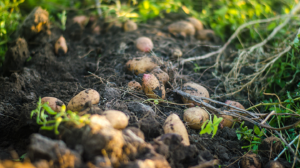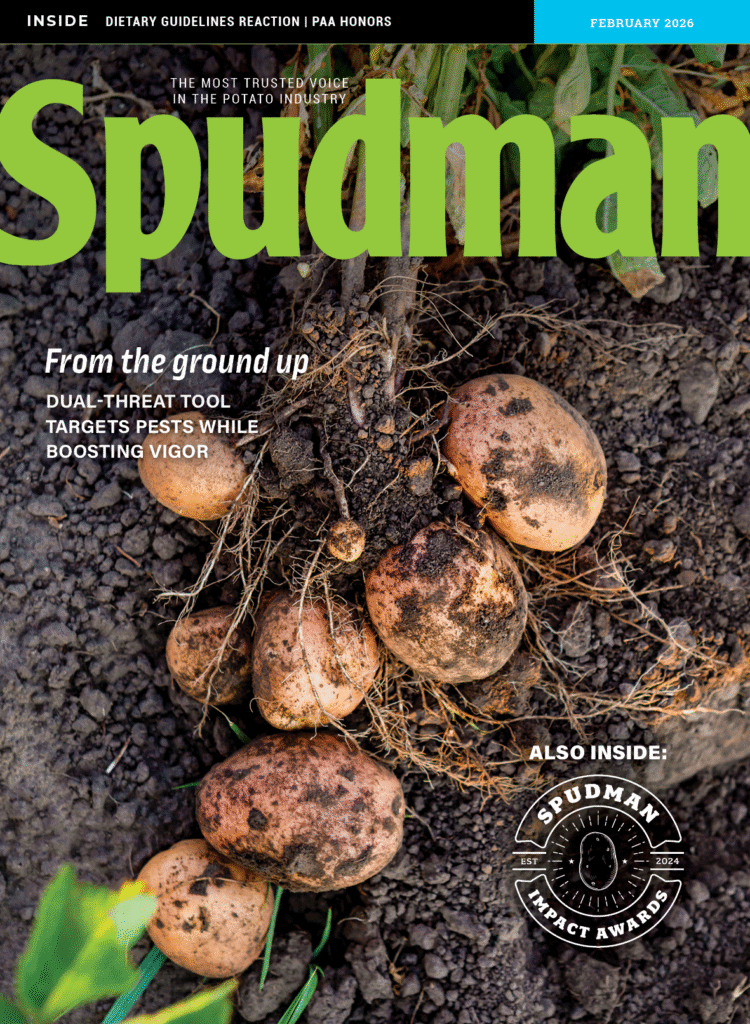Mar 5, 2025NPC greets potato wart report with cautious optimism, calls for robust mitigation
The Canadian Food Inspection Agency (CFIA)’s announcement that it did not detect potato wart in its 2024 National Potato Wart Survey is being met with cautious optimism from a leading industry advocacy group.
The survey collected 2,200 soil samples from seed potato fields in British Columbia, Alberta, Saskatchewan, Manitoba, Ontario, Quebec, New Brunswick, Prince Edward Island (PEI) and Nova Scotia that had no known association with previous potato wart detection, the agency said in a March 4 statement.
“I certainly feel a sense of relief seeing the results of this year’s survey,” Lawrence MacAulay, Minister of Agriculture and Agri-Food of Canada, said. “We will continue to work with growers and the potato industry to manage this terrible pest, so we can keep delivering top-quality Canadian potatoes to folks here in Canada and around the world.”
The survey results have been shared with provincial governments, the Canadian Potato Council, and the USDA’s Animal and Plant Health Inspection Service (APHIS), according to the statement.
“The fact that they didn’t find in this very, very small sample of tests is a good thing, (but) it is a very small sample of tests. To some degree, given that limited amount, it would be surprising if potato wart was indeed found,” National Potato Council CEO Kam Quarles told Spudman. “When you compare that to the level of testing that goes on every single year in Idaho still for PCN (potato cyst nematode), on a relative basis, it’s a very tiny amount of testing.”

Potato wart history in PEI
Potato wart was detected in PEI in 2021 and the U.S. border completely closed to potatoes from the province. Fresh potatoes were allowed back into the U.S. in April 2022, though PEI seed potatoes are still banned.
CFIA completed an investigation into PEI potato wart in August 2023. An analysis of nearly 50,000 soil samples from fields associated with the 2021 detections found potato wart in four additional fields — a result “expected in investigations of this scale,” according to the agency.
Last February, CFIA announced plans to review and replace its current long-term risk management plan for potato wart as part of negotiations with APHIS.
In its most recent statement, the agency said it will soon implement a new National Potato Wart Response Plan that includes improved risk mitigation measures such as enhanced biosecurity and additional soil sampling and analysis.
“Surveillance is an essential component of the CFIA’s work to monitor for invasive pests like potato wart,” Paul MacKinnon, CFIA president, said. “The survey also helps maintain the confidence of domestic and international trading partners in Canada’s potato industry.”
In 2024, Canadian farmers produced a record crop of 127 million cwt of potatoes, 23% more than 2020 and 1.2% more than 2023.
Potato wart threat
Potato wart is a persistent soil-borne fungus that may reduce yield and potato tuber quality on farms. It can spread through the movement of soil, farm equipment and potatoes from fields that have potato wart.
In Canada, the disease is only known to occur in Newfoundland and Labrador and PEI, according to CFIA. The agency said regulatory control measures are in place in both provinces to help prevent potential spread.

While samples from Newfoundland and Labrador are not collected as part of the National Potato Wart Survey, CFIA samples seed potato fields in the province annually as part of its ongoing inspection and surveillance work, the agency said.
Those efforts aren’t good enough, Quarles reiterated to Spudman.
“We want to see a substantial amount of ongoing testing in the production areas that have had wart in the past and in the areas surrounding it, which is basically all production in Prince Edward Island,” he said. “We have said that for years, and we’re not wavering from that. They need to maintain a rigorous surveillance on Prince Edward Island to make sure that the disease is not being allowed to move around, to the extent that they can prevent it.
“That data, coupled with robust mitigation efforts that still haven’t been made public and that we’re still waiting to see, may help to hopefully be able to reestablish the confidence of the North American market in production in PEI. But absent those mitigation efforts, absent APHIS being able to plug some of the vulnerabilities on the U.S. side that still remain, that lack of confidence is going to persist.”
— Melinda Waldrop, Managing Editor














